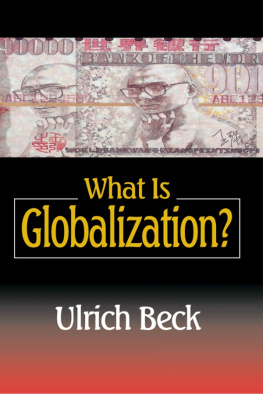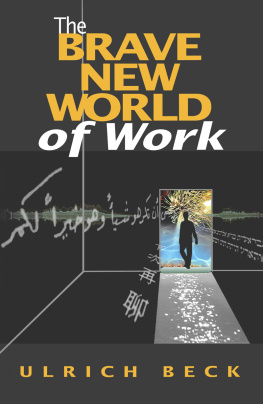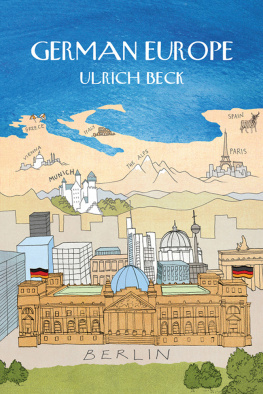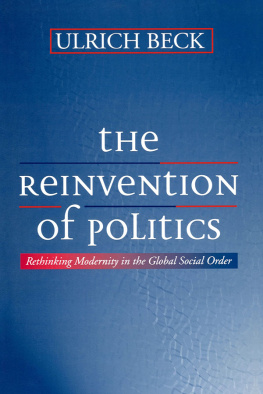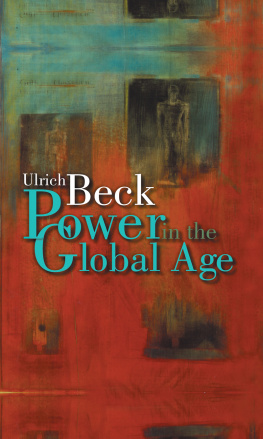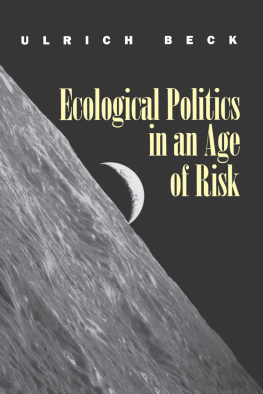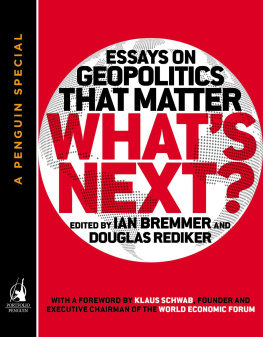This English edition Polity Press, 2012.
All rights reserved. Except for the quotation of short passages for the purpose of criticism and review, no part of this publication may be reproduced, stored in a retrieval system, or transmitted, in any form or by any means, electronic, mechanical, photocopying, recording or otherwise, without the prior permission of the publisher.
A catalogue record for this book is available from the British Library.
The publisher has used its best endeavours to ensure that the URLs for external websites referred to in this book are correct and active at the time of going to press. However, the publisher has no responsibility for the websites and can make no guarantee that a site will remain live or that the content is or will remain appropriate.
Every effort has been made to trace all copyright holders, but if any have been inadvertently overlooked the publisher will be pleased to include any necessary credits in any subsequent reprint or edition.
Preface
For many years it has been my business to sound out the present for potential futures (something one should do, however, only with a certain twinkle in the eye). Today the question is: which opportunities, which futures are implicit in the events convulsing the world the nuclear worst-case scenario in Fukushima, the global financial crisis, the chaos in the euro zone, the uprisings of the Arab spring, as well as the protest movements in Athens, Barcelona, New York, Moscow, etc.? This much seems clear: nobody thought they were possible. They are exploding our horizon of expectation (including the conceptual framework of the social sciences!). They are striking at the heart of modernity. At the same time they are opening up new spaces of action, including space for alliances across all borders. All of them are by nature transnational and therefore cannot be understood and explained within the frame of reference of the national outlook. And, most of all, there are uprisings of multiple global generations and revolutionary middle classes, even in the United States and Russia. The citoyen is making a comeback across the globe!
Two diametrically opposed futures are looming. One is a Hegel scenario in which the threats engendered by global risk capitalism represent a historical opportunity for the cunning of reason. This is the cosmopolitan imperative: cooperate or fail, succeed together or fail alone.
At the same time, however, the everyday experience that the world is becoming uncontrollable also triggers a Carl Schmitt scenario, a strategic power game which, as the planetary state of exception is becoming normalized, dismantles basic rights and democracy and opens the doors for a neonationalist politics. Remarkably, these mutually contradictory potential futures seem to be interconnected in a variety of ways; this used to be called dialectics.
One way or another, we have to find new ways to orient ourselves in a world that is in a state of turmoil. Of course, political leaders need to address local issues and to react to peoples specific demands; but without a cosmopolitan outlook, such a reaction is likely to be inadequate. My Twenty Observations on a World in Turmoil is a demonstration of cosmopolitan politics in practice. It is more than a mirror: it is a magnifying glass that brings into focus the processes which are transforming our world and highlights the formidable challenges we face today.
Weltinnenpolitik , global domestic politics, the concept I am introducing and developing, is much more than a political theory, a philosophical utopia (or dystopia), a governance programme or a state of mind: it is the reality of our times. I turn the argument that global domestic politics is an unrealistic ideology on its head, arguing that at the beginning of the twenty-first century it is the proponents of the national who are the idealists. They view reality through the obsolete lenses of the nation state and thus cannot see the profound global changes which are transforming our reality. Global domestic politics is therefore a perspective, a political reality and a normative idea. And it is the critical theory of our times since it challenges the most profound truths which we hold dear: the truths of the nation.
Nationalism is particularly toxic not only because of the overt justification it gives to national protectionism and global inequalities. It is dangerous on account of its cognitive status: nationalism defines and ossifies our political and social scientific frameworks and our most basic categories of thought and knowledge. Nationalism as an ideology thus limits not only what we can imagine and wish for, but, more importantly, what we know and how we conceive of reality. The most basic categories are indeed captive to the national order: family, gender, religion, class, democracy, politics, etc. all are nationally defined. Our legal and administrative systems define them and these definitions are amplified by the social sciences. The demystification of our sciences requires us to part with nationalism and to see the world as it is, as already cosmopolitan. And indeed, climate change, financial crises, cities, migration, families, Europe, risk societies if we open our eyes we can see that they all are already cosmopolitan. Especially world cities are examples of this reality: they are part of the world being nodal points for the dissemination of people, goods, technologies, capital, risks and images but are still part of their nations. They exemplify the logic of both/and of both globalism and localism, of the transnational that cohabits with the national which is in fact the logic of global domestic politics (rather than either/or).
Critics argue that this story lacks the agents which propel it. They ask: how has this global domestic politics come into being? Was it an unavoidable unfolding of an idea? Was it a side-effect of global capitalism? Who were the agents who advanced the reality of cosmopolitanism and the processes that I propose be uncovered? And isnt the puzzling blindness of various people to this reality not, in fact, a blindness at all, but an antagonism in wilful opposition to this involuntary global domestic politics?
Modernity is threatening to fail specifically on account of its successes that is my thesis. Precisely the staged threat of failure not first the catastrophe but already the anticipation of the catastrophe is undermining the key institutions of the nation state and making the latter receptive in a new way to cross-border political initiatives. The social and psychological volatility entailed by cultural relativism, on the one hand, and the recognition of global risk, on the other, are giving rise to enormous discontent, which in turn inspires various political and social movements for resistance and reform. Those movements address to put it bluntly the moral aspect of the events now unfolding. The protesters, who are Occupying Wall Street in different countries, are calling for a return to the principles of equality, social justice and solidarity. People are questioning why the crisis for which they are not to blame should be solved at their expense.
This might be the birth of a new Weltbild , a new world view namely, global domestic politics because such protests and projects are typically justified in the name of humanity and the planet. The universality of such claims, moreover, is not conjured up out of thin air or a merely utopian aspiration. Instead it presents itself in the form of globally available cultural models of protest and resentment (We are the ninety-nine per cent, occupying Wall Street), which, when enacted by activists and social movements, inspire new circles of human agency and responsibility to change, save or otherwise repair the world in the name of another modernity.




